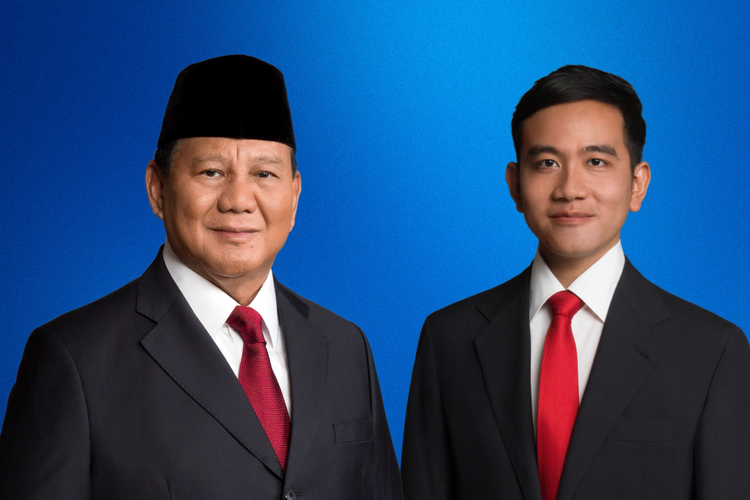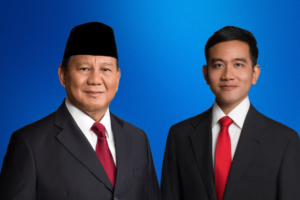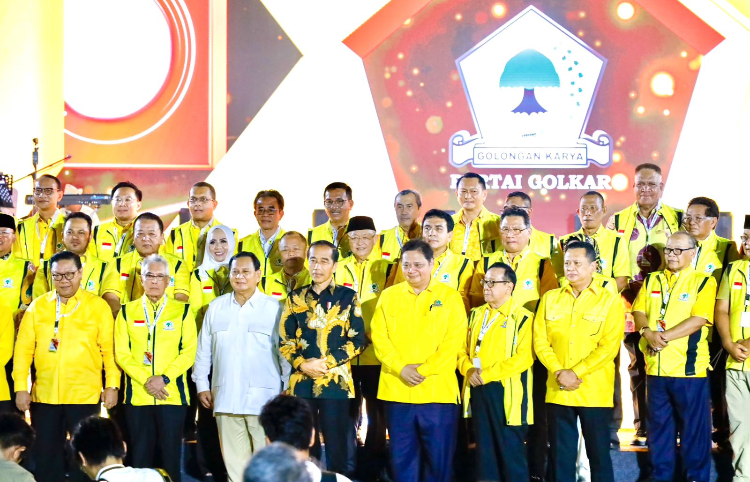

Welcome to the buzz surrounding Indonesian politics as Prabowo Subianto and Gibran Rakabuming Raka dive into discussions about the cabinet composition for 2024. Get ready to delve into the intricacies of forming a government that balances political alliances and competencies, all while capturing the public’s attention. Let’s explore who these key players are, what challenges they might face, and which potential candidates could shape Indonesia’s future governance.
Who are Prabowo and Gibran?
Prabowo Subianto, a prominent figure in Indonesian politics, boasts a military background and has run for president multiple times. Known for his strong leadership style, he brings experience and influence to the table. On the other hand, Gibran Rakabuming Raka is the son of President Joko Widodo and has made a name for himself as a successful entrepreneur in the culinary industry.
Both Prabowo and Gibran represent different generations with unique perspectives on governance. While Prabowo embodies traditional political experience, Gibran symbolizes youthfulness and innovation. Their collaboration signals a blend of seasoned wisdom and fresh ideas that could shape Indonesia’s future direction. As they engage in discussions about cabinet composition, their individual strengths and backgrounds will play crucial roles in determining the country’s path forward. Keep an eye on how these dynamic personalities navigate the complexities of forming a cohesive government team.
The Importance of the Cabinet Composition
Crafting the right cabinet composition is crucial for any government, as it determines the direction and efficiency of governance. The individuals appointed to key positions in the cabinet play a significant role in shaping policies, implementing reforms, and managing various sectors of the economy. Each member brings their expertise and experience to the table, influencing decision-making processes that impact millions of citizens.
Moreover, a well-balanced cabinet ensures representation from diverse backgrounds and regions within the country. It promotes inclusivity and allows for different perspectives to be considered when addressing national issues. By selecting competent individuals with a mix of skills and knowledge, a government can enhance its capacity to address complex challenges effectively.
In addition to competency, political considerations also come into play when forming a cabinet. Balancing alliances within coalitions while prioritizing meritocracy can be a delicate task for leaders. Striking this balance is essential to ensure stability within the government while upholding standards of governance. Getting the right mix of individuals in key positions sets the tone for effective leadership and policymaking during times of both stability and crisis.
Potential Challenges in Forming a Cabinet
Forming a cabinet is no easy task, especially in the complex and diverse political landscape of Indonesia. One potential challenge that Prabowo and Gibran may face is finding the right balance between rewarding political allies and selecting competent individuals for key positions. Another obstacle could be managing competing interests within their coalition, as different parties may push for their own candidates to be included in the cabinet. This delicate balancing act requires strategic negotiation skills and strong leadership to ensure cohesion within the government.
Moreover, navigating through various stakeholder expectations while also considering public opinion adds another layer of complexity to the process. The pressure to deliver on campaign promises while maintaining governance effectiveness can pose significant challenges during cabinet formation. Furthermore, ensuring diversity and inclusivity in cabinet appointments while also prioritizing meritocracy can be a challenging feat. Striking the right balance between politic considerations and qualifications will be crucial for Prabowo-Gibran’s success in forming a capable and effective cabinet team.
Possible Candidates for Key Cabinet Positions
As the discussions around the cabinet composition led by Prabowo and Gibran continue to gain momentum, speculation on potential candidates for key positions is reaching its peak. The selection of individuals to lead crucial departments will play a vital role in shaping Indonesia’s governance in 2024. Names of seasoned politicians, technocrats, and experts are being circulated as possible contenders for ministries like finance, defense, health, and education. Each candidate brings a unique set of skills and experiences that could contribute significantly to the development of the country.
The challenge lies in balancing political alliances with competence when making these appointments. It is essential for Prabowo-Gibran to strike a delicate equilibrium between rewarding supporters while also ensuring capable professionals are entrusted with critical roles. The public eagerly awaits announcements on who will be tasked with steering Indonesia’s future agenda towards progress and prosperity. The decisions made regarding key cabinet positions will undoubtedly have far-reaching implications on governance effectiveness moving forward.
Balancing Political Alliances and Competencies
Balancing political alliances and competencies is a delicate dance in the world of Indonesian politics. Prabowo and Gibran must navigate this terrain with finesse to ensure a cohesive and effective cabinet composition.
On one hand, they need to consider fulfilling promises made to their political allies while also selecting candidates based on their expertise and qualifications for key positions. Striking the right balance between satisfying various factions within their coalition and appointing competent individuals will be crucial for the success of their government.
The challenge lies in avoiding favoritism or cronyism while still maintaining strong relationships with important parties in the political landscape. It’s a fine line to walk, requiring strategic thinking and negotiation skills from both Prabowo and Gibran. The decisions they make regarding political alliances and competencies will shape the effectiveness and credibility of their future administration.
Public Response to the Discussion
The public response to the discussions on the cabinet composition involving Prabowo and Gibran has been mixed. While some people are optimistic about the potential for fresh faces and new ideas in key positions, others express concerns about political motivations overshadowing competency. Many Indonesians are eager to see a balanced mix of experienced politicians and professionals from various sectors to ensure effective governance. The transparency in selecting candidates for crucial roles is crucial in gaining public trust and confidence.
Social media platforms have been buzzing with debates and speculations about who might fill these key cabinet positions. People are actively discussing the implications of different individuals holding influential roles in shaping Indonesia’s future policies. It is evident that citizens are closely watching how this process unfolds as they anticipate the impact it will have on their daily lives and the direction of Indonesian politics moving forward.
Conclusion: The Impact of Cabinet Composition on Governance
As discussions between Prabowo and Gibran regarding the cabinet composition continue to unfold, it is evident that the decisions made in forming the cabinet will have a significant impact on governance in Indonesia for years to come. The selection of competent individuals who can balance political alliances while possessing the necessary skills to drive progress and development is crucial.
The public’s response to the potential candidates for key positions will also play a role in shaping the government’s credibility and effectiveness. It remains essential for Prabowo and Gibran to consider not only political affiliations but also competencies when making their selections. As Indonesia looks towards 2024, all eyes are on how this coalition navigates through these challenges to form a balanced and effective cabinet that can lead the country towards stability, growth, and prosperity. The choices made now will undoubtedly shape the future of Indonesian politics and governance.







